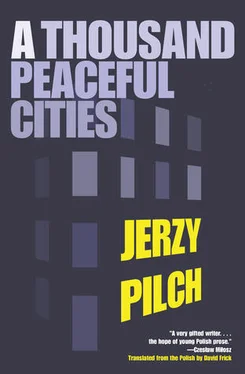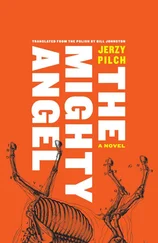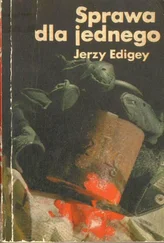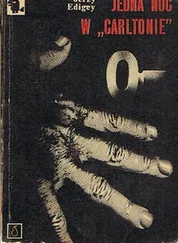I shook my head.
“Read it. That is reading matter for which it is never too early or too late. When you read it, you will come upon a fragment in which Mr. Settembrini says the following to Hans Castorp. I know the passage by heart. And so, Mr. Settembrini says the following: ‘Look at him, this Luther! Observe the portraits we have, in early and later life. What sort of cranial formation is that, what cheek bones, what a singular emplacement of the eye! My friend, that is Asia!’ Yes, Jerzy, take a good look at Luther. That’s a powerful piece, a powerful fragment, considering that Thomas Mann was a Lutheran. Although one ought rather to say that there was, that there lived in this world, a Lutheran who was Thomas Mann. I doubt that this was good for Lutheranism. In any case, I followed that Asiatic trail, I investigated, I studied, I made enquiries, I interpreted, and do you know what? It turned out that the likeness of the Apostle Paul with the head of Lenin that you can see in our church is the result of chance, ignorance — although, for all that, no less shameful! The guy simply didn’t know what Lenin looked like! And not only that, in the year of our Lord one-thousand-nine-hundred-and-thirty-two the guy had no idea that, just a few hundred kilometers from here, the Bolshevik Revolution had taken place! Not a clue about God’s good earth, nothing but high art. Botticelli, Rubens, and Rembrandt; Chopin, Schubert, and Schumann. Which is a good thing. But I think, Jerzy, that if someone doesn’t know what Lenin looks like, he shouldn’t get it into his head to paint the Apostle Paul. That’s what I think.”
“But by what miracle did he paint it, granted not where he ought to have, and yet, he painted it — Lenin’s head. By what miracle did he do that, if he had never seen Lenin’s head?” I was amazed by my own shrewdness.
“Oh, by some sort of diabolical miracle, by some connective tissue in the painter’s subconscious. If you don’t want to paint Lenin, you have to know what Lenin looked like, because otherwise an unpleasant surprise may come your way. That’s right, Jerzy. In any case, this is the fundamental reason why I stopped going to our church. You know, I spend too much time in rooms adorned with portraits of Ilyich to have to experience it in church too, such — let’s be clear about this — such mixed feelings. When once or twice a year I feel the irresistible urge to visit the House of God, I drive to Ustroń and fertig . And besides, I’ve clearly become disgusted by art. I’ll say more: I despise art. I know that this sounds quite barbaric, but I’ve come to the conclusion that guys who don’t know the current prices of basic articles of consumption, as well as the current exchange rate of the dollar, are not in a position to tell me anything about the world, not in their poetry, not in their painting, not in their music. It is possible that an unearthly spirit speaks through them, but, because of their earthly laziness, they are not prepared to fully understand the language of that spirit. I repeat. I’m aware that this is unfair, but I, Grand Master Swaczyna, adhere to this rule: three times a year I drive to the church in Ustroń, and once a year I read The Magic Mountain , and that is nourishment sufficient unto my soul. Amen, amen, Jerzy. Run along now, the service is just starting. Run, and pray. Praise the Lord with your singing of Psalms, and don’t glance too frequently in the direction of the stained-glass window.”
I was already getting out of the car, already the missionary music was enveloping me. Female choralists were singing, the Wittenberg bells were ringing, Protestants were gathering. I was just about to cross the cold shadow of the high church walls when Grand Master Swaczyna leaned out of his car and called to me once again:
“Jerzy, I beg your pardon, but I almost completely forgot about a most urgent matter. Please be so kind as to relate to your father, the Chief, that the object about which we spoke, your father will know what it is about — you, too, after all — please tell your father that I ordered a prototype made in one of my workshops.”
The Grand Master examined me carefully. He measured me with his glance from head to foot, and he added with deadly gravity:
“Don’t worry, Jerzy. You’ll look fantastic with a crossbow on your shoulder.”
•
I didn’t sing the Psalms, I didn’t listen to the sermon, not once did I look in the direction of the front wall, which was almost entirely covered with the watery colors of the stained-glass window. I sat with lowered head. I prayed, and I definitively drove away the chimera of betrayal. In passing, and perhaps not at all in passing, Grand Master Swaczyna had said the decisive thing; he gave name unceremoniously to the hope that was vaguely sprouting in me: that, striding through the streets of Warsaw with a crossbow on my shoulders, I might indeed attract the attention of women.
“Women and men, children and old geezers. Everybody,” Mr. Trąba had sought to convince me, and to the extent that, on that first occasion, I listened to his arguments in our darkened kitchen with growing animosity and an ever stronger will to betrayal, now I repeated those same arguments to myself, word for word, in a spirit of meekness and understanding. Even then I was incredibly keen about my own seductiveness.
“I know one green tree, beautiful the olive tree. There the nightingale sweetly sings to our beloved psaltry,” sang the women’s chorus. I raised my head slightly. I stared at them just as shamelessly as I had at Małgosia Snyperek a few moments before. The second from the left was alluring like a Canaanite woman. “Or I will hasten away into the first faint light with a Canaanite woman, To search through the land of Galilee for the grace of heaven,” I sang together with her, and together with the tempting Samaritan woman, fifth from the left, and together with the raven-haired Philistine woman in the middle, and I humbled myself before the Thundering God, the Old Man with the Gray Beard, and the words of the hymns got mixed up in my head with the words of Mr. Trąba. “Or I will go with that Samaritan woman at midday joyfully, Where over Jacob’s well the nightingale warbles wondrously.” I will go at midday joyfully, Gomułka to kill wondrously, I joked, and I sang in spirit, and the specter of betrayal vanished definitively, and I came to understand in the process that the harmonizing of rhyme and truth in poetry is not an easy thing: after all, the death-bearing shaft was to pierce the heart of the First Secretary not at midday but in the evening.
According to Mr. Trąba’s plan, we were going to wander boldly around the streets for the entire day, taking in the sights of the capital; we were going to climb to the top floor of the Palace of Culture quite openly, go to the Old Town, and ride to “Decade of Socialism” stadium; we were going to move about with ostentatious openness and absolute freedom; we were going to proceed this way, since, so Mr. Trąba was assuming, no one would remember us anyway, since no one would look at us anyway, since, anyway, all would be examining me, Jerzyk, and not even so much me, Jerzyk, as my peculiar plaything, the crossbow strapped to my shoulder. And even if someone should glance at me, he wouldn’t for the world be able to identify me the next day, because I will be distinctly and unrecognizably disguised. My cheeks will be covered with venomous war paints, on my head I’ll have a luxuriant headdress, I’ll be wearing a broad caftan that will alter my silhouette and at the same time draw attention with its gaudy colors.
“Gentlemen, it’s perfect!” Mr. Trąba choked on his own saliva. “There’s no gap in this plan, not a crack. This isn’t some sort of extravagance in the plotline. It’s just clear-sighted rationalism and strict adaptation to the requirements of the circumstances. We have to go to Warsaw on the night train that leaves here at 10:17 in the evening and has a scheduled arrival of around 7:00 in the morning. We have to — yes or no?”
Читать дальше












